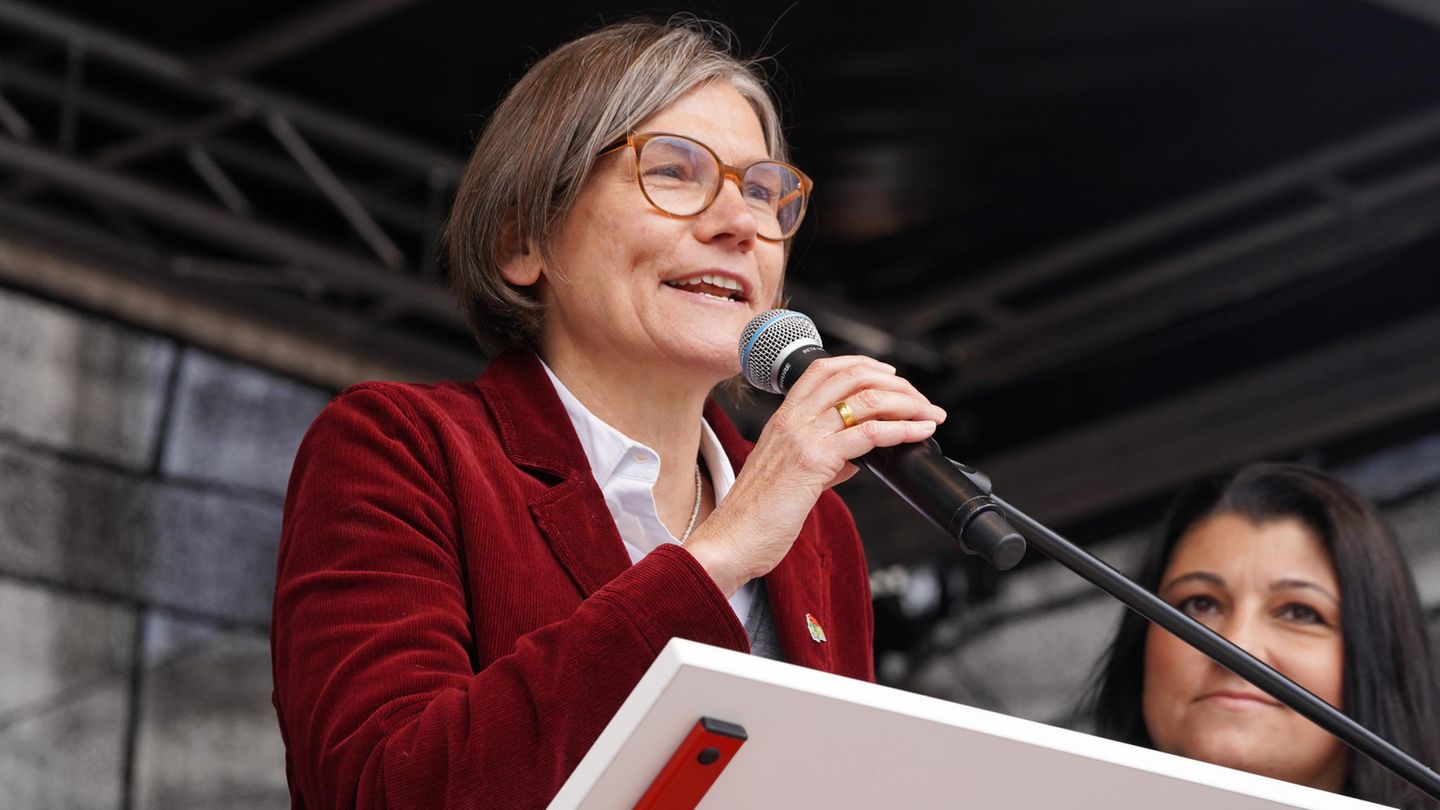Christiane Benner will be the first woman to head Germany’s most powerful union. Her way to get there began as a young woman – but she had to drill through a few tough rocks to reach her goal.
By Victoria Robertz
There have long been discussions about the successor at the head of IG Metall. But now one thing is certain: in the future, Christiane Benner will be the first woman to lead Germany’s largest individual trade union. At the suggestion of the previous incumbent Jörg Hofmann, the board officially appointed the long-standing second chairman as his successor on Tuesday. Benner is to be elected at the union convention at the end of October.
The 55-year-old graduate sociologist from Aachen will then have far more influence than at the head of the German Trade Union Confederation (DGB) – many wanted to “praise her away” there last year. As IG Metall boss, Hofmann has the right to propose the DGB chairmanship and wanted to recommend Benner. This, however, allowed the chemical unionist Yasmin Fahimi to take the DGB executive chair and initially remained the second chairwoman of IG Metall. It is actually common for the person in the deputy office to inherit the outgoing boss – after eight years in office, Hofmann will no longer be in office for reasons of age. But Benner had to fight for this successor claim.
Christiane Benner lacks experience in large collective bargaining rounds
Since 2011, the married Benner has been an executive member of the board of IG Metall and since 2015 second chairwoman. Despite this, she was repeatedly mistrusted by the organization, mainly due to her lack of experience with the tough tariff business. It has negotiated smaller contracts itself and also implemented complex agreements in Lower Saxony. The experience as a negotiator in a large metal and electronics group for around four million employees is missing in her CV.
That’s why she should be provided with a collective bargaining expert, the head of the Baden-Württemberg district, Roman Zitzelsberger. For years he was regarded as a top job in IG Metall and already had experience in collective bargaining. Last November, he negotiated the pilot agreement for the approximately 3.9 million employees in the metal and electrical industry. In order to avoid a power struggle, Hofmann sought a dual leadership with Zitzelsberger and Benner, but was unable to win a majority on the board of IG Metall. After all, there would have been a dual leadership in the “men’s shop” IG Metall of all things if a woman could have made it to the executive chair for the first time.
A change in the statutes also pushed by Hofmann would have largely eliminated the differences between the first and second presidencies. However, there was no majority among the 36 members to abolish the differences between the two chairmen, which had been noticeable in everyday life. Benner had thus survived another attempt to limit their competencies. The defeated Zitzelsberger quickly made it clear that he did not want to vote against her. In April he withdrew completely from the board for health reasons and now wants to remain district manager in Stuttgart.
Benner wants to take care of women and works councils in particular
This cleared the way for Benner. She will thus become head of the 2.1 million strong union, which includes the central German industrial sectors of automobiles, mechanical engineering and steel. She sits on the supervisory boards of BMW and Continental, but will first have to gain the weight of her predecessor in politics. In the “Süddeutsche Zeitung” she already announced that she wanted to “step on her feet” and campaigned for a higher top tax rate and the wealth tax.
Benner is a member of the SPD and was already active in the works council at the age of 18. After graduating from high school in Bensheim in southern Hesse, she began an apprenticeship with the Darmstadt-based machine builder Carl Schenck AG. Because she found the evaluation system for the trainees to be unfair, she joined the works council and quickly became a youth and trainee representative – a career as a trade unionist was open to her. However, she only pursued this after completing her sociology studies in Marburg, Frankfurt and the USA.
At IG Metall, Benner was previously responsible for the areas of co-determination, target group work and equality and took care of recruiting more employees and students as members. These included, for example, IT specialists and engineers, all of whom are far removed from the classic skilled metal worker who still dominates the union. In the division of labor with Hofmann, Benner was always responsible for the big things, which initially promised little fame. In retrospect, however, they appear all the more forward-looking.
Benner has been thinking about artificial intelligence and its consequences for the world of work for years and is strongly committed to the concerns of women. “It’s always about the compatibility of work and life,” says the future boss. She is a staunch supporter of the quota and wants to reduce structural disadvantages. One of her concerns is to help women back up the career ladder after maternity leave. She also wants to focus more on the work of the works councils, the actual power base of the union.
Further discussions that Benner expects in the coming months and years will revolve around the transformation to a climate-friendly industry and the four-day week. In April, IG Metall made a move for the steel industry to demand a four-day week in the coming wage round with full wage compensation.
This article first appeared in the business magazine “Capital”, which, like the stern, belongs to RTL Germany.
Source: Stern




